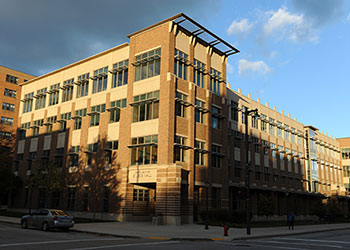BioForward Wisconsin is a member-driven organization promoting the growth of Wisconsin’s biohealth industry and defining the future of health care through leadership and integrated solutions. BioForward is the only Wisconsin organization representing more than 200 biohealth member companies, including biotech, biopharma, medical device, diagnostics, digital health, as well as research institutions and service providers. BioForward programs and memberships support members through business networking events, advocacy on behalf of the industry, exclusive rebates through our select savings program, and educational and speaker programming.
Catalyst BioConsulting (formerly PICO – Postdoc Industry Consultants) is a business consulting group composed of highly trained scientists that provides a broad range of consulting services for the many challenges faced by startup and established firms. It offers pro-bono services geared towards the sustainable development and growth of innovative biotech and health technology companies in Wisconsin and beyond.
FedTech builds startups around breakthrough technology from the world’s most advanced research facilities. The FedTech team consists of seasoned entrepreneurs; early-stage startup investors, advisers and mentors; former U.S. government leaders in the rapid innovation space; former CXOs; and all-stars. The primary sponsor, the National Security Innovation Network (formerly known as MD5), works to build networks of innovators that generate new solutions to national security problems.
gBETA is a program of nationally ranked startup accelerator gener8tor. gBETA is a free, seven-week accelerator for early-stage companies with local roots. Each program is capped at five teams, and requires no fees and no equity.
Gener8tor's turnkey platform for the creative economy connects startup founders, musicians, artists, investors, universities and corporations. The gener8tor platform includes pre-accelerators, accelerators, corporate programming, conferences and fellowships.
Milwaukee NSF I-Corps Initially funded by the National Science Foundation (NSF) in 2015 and renewed in 2018, the Milwaukee I-Corps Program offers researchers and entrepreneurs a chance to explore the viability of their technologies and ventures through the “Lean Startup” or “Lean Launch” process of direct engagement with the potential markets. Through a five-week workshop, participants are coached on designing and validating a business model around their idea and deciding whether the idea is a go/no-go decision based on their business model. Regardless of the go/no-go outcome, teams will develop valuable skills in discovering the market – skills that will inform their research, business and careers.
Wisconsin Technology Council is the science and technology adviser to the governor and the Legislature. Launched in 2001, the Tech Council was created by a bipartisan act of the governor and the Legislature. It is an independent, nonprofit and nonpartisan board with members from tech companies, venture capital firms, higher education, research institutions, government and law.
Center for Technology Commercialization provides one-on-one assistance to early-stage emerging technology businesses throughout Wisconsin. From agriculture to biotechnology, Center consultants are experts in commercialization processes. We have more than 60 years of combined experience and have supported clients in acquiring more than $195 million in federal and additional funding.
